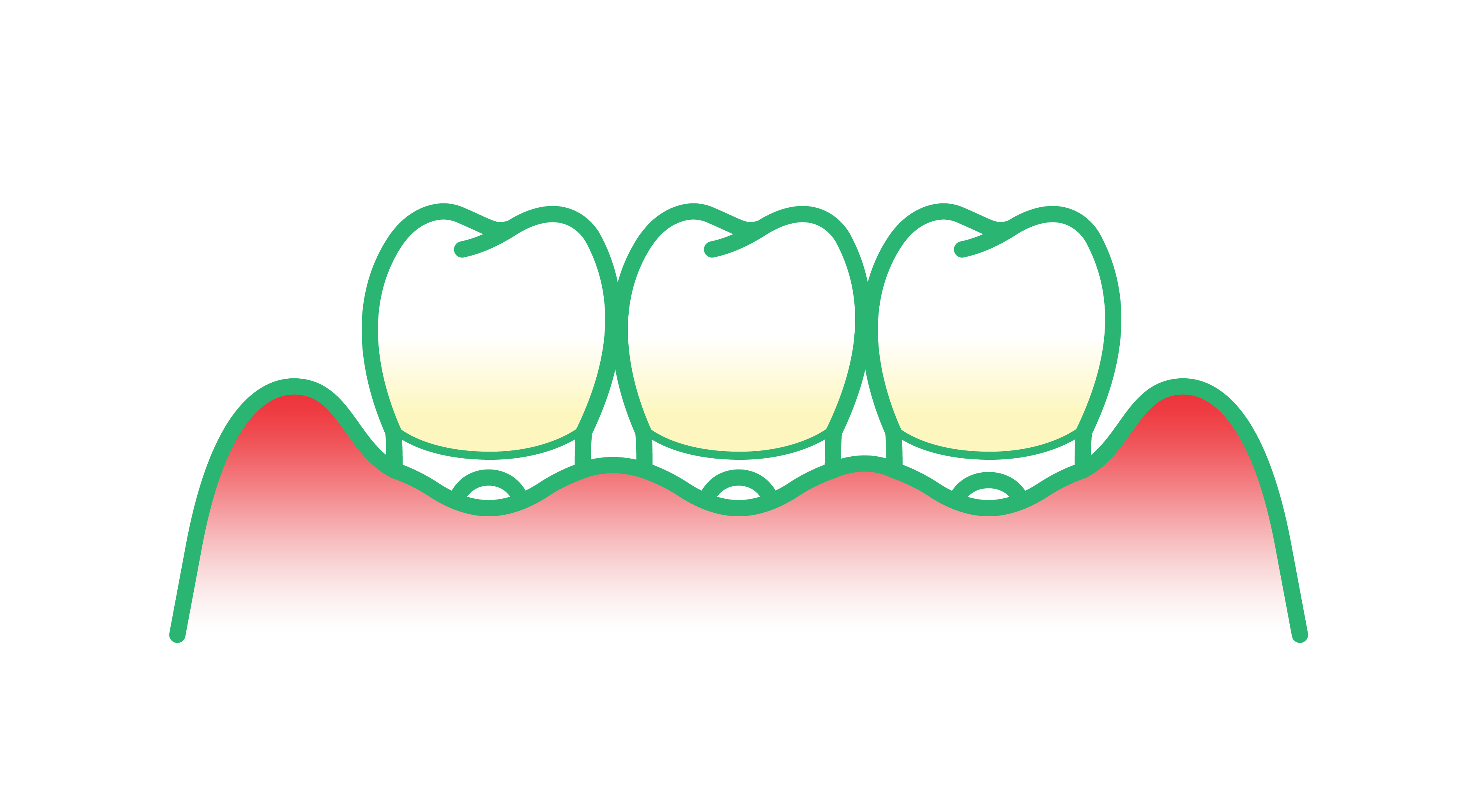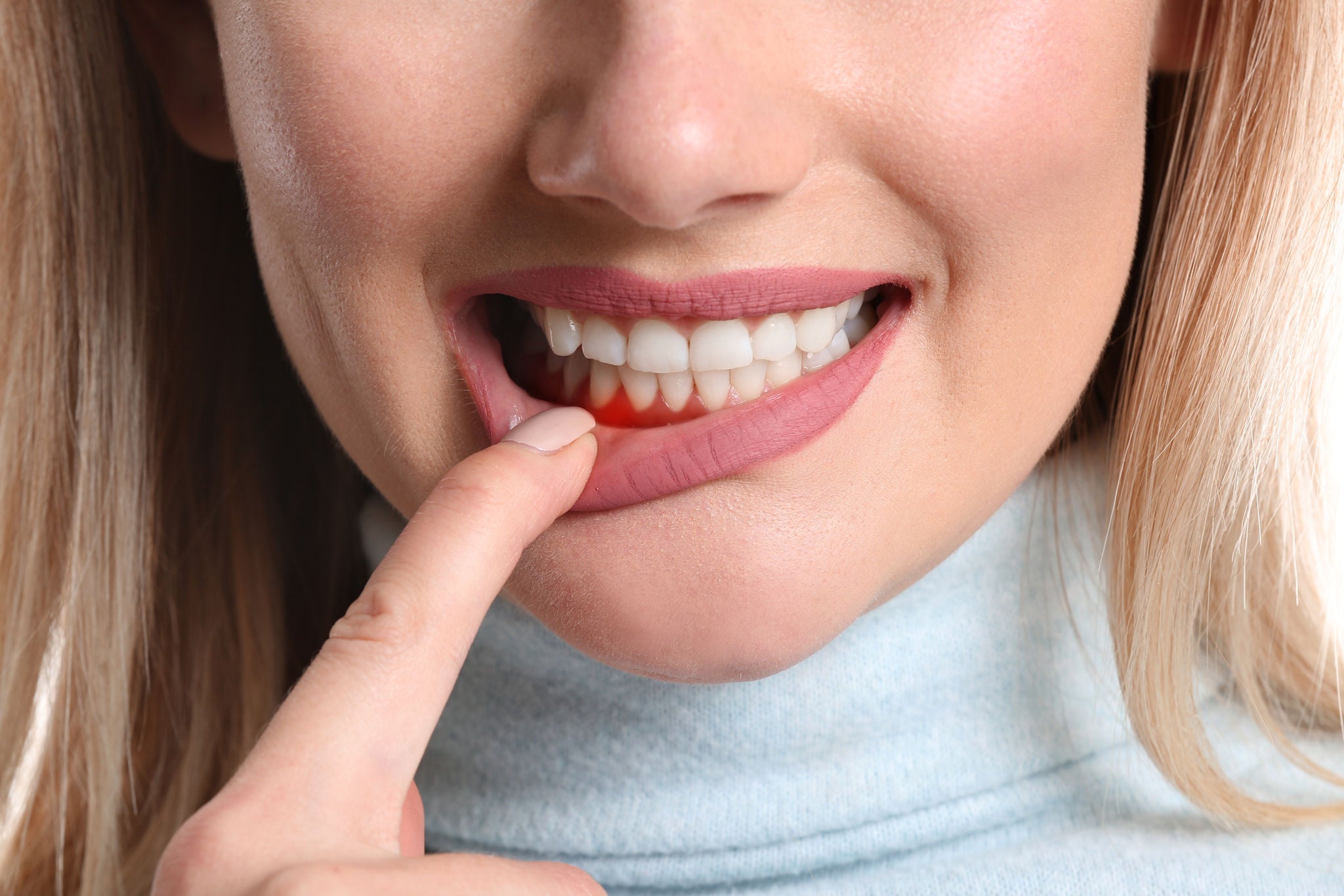
How Does Smoking Affect Your Teeth and Gums?
The mouth is the gateway to the whole body, and a key factor in maintaining a healthy lifestyle. That’s why we are so passionate about teaching the benefits of practising a twice-daily complete oral hygiene ritual. This simple act of self-care dramatically reduces the risk of developing any number of potentially serious oral health issues.

Just as there are rituals that improve our health, there are also habits that negatively affect our health, such as smoking. The effects of smoking on teeth, gums, and oral health can be severe.
The difference between these two behaviours is that good oral hygiene is a habit anyone can learn to do easily, with practice. Smoking, on the other hand, is an addiction that should be addressed with the understanding that there is an underlying brain chemistry reaction driving the habit.
The choice to stop smoking is a very personal decision. We want to help you make an informed decision, by clearly explaining how smoking impacts oral health based on current research.
Why smoking is addictive
Smoking addiction is triggered by the naturally occurring nicotine found in tobacco. When you smoke, the nicotine activates receptors in your brain that release feel-good chemicals like dopamine and serotonin. Soon, your body associates the act of smoking with feelings of pleasure.
Prolonged smoking changes the brain by creating extra nicotine receptors to accommodate the excess nicotine from regular tobacco use. When your brain does not get its usual dose of nicotine, your body goes into withdrawal, causing you to become irritable and anxious.
When you light up again, those receptors receive their expected nicotine boost, causing you to associate smoking with relief. Thus, the power of addiction is felt. The good news is that after you cease smoking for a time, the number of nicotine receptors in the brain returns to normal, and the compulsion to smoke lessens dramatically. Many long-time smokers have been able to kick the habit successfully.
How smoking impacts oral health
Smoking damages every part of your mouth.
The more noticeable oral consequences of smoking include staining of the teeth from tar and nicotine exposure and halitosis (bad breath).
Dental professionals have found that smoking is the greatest single risk factor for developing both periodontal disease and oral cancer.
Periodontal disease
Periodontal means “surrounding or encasing a tooth” and refers to gum and bone tissues.
When nicotine enters the bloodstream, it causes blood vessels to restrict, reducing blood flow throughout the body. This is why smokers often miss the early warning signs of gingivitis: puffy, inflamed gum tissue and bleeding gums.
Without proper dental intervention, gingivitis can become periodontitis. In fact, smokers are more likely to develop periodontitis than non-smokers. Once a person develops periodontal disease, smoking also increases its rate of progression.

Treating periodontitis requires interventions that can be both non-surgical and surgical. Smoking has been shown to reduce the effectiveness and healing of these treatments. Because smoking impacts blood flow, gum tissues have a harder time healing.
The result of these compounding problems is a higher likelihood of tooth loss.
Periodontitis has also been linked to an increased risk of conditions like rheumatoid arthritis, diabetes, cardiovascular disease, and Alzheimer’s.
Oral cancer
The average cigarette contains upwards of 2,000 unique chemicals, including 70 carcinogens. These carcinogens are absorbed into the bloodstream through the soft tissues of the mouth, as well as through the lungs.
It’s no wonder that smoking is the leading cause of oral cancer, which can present in the mouth, throat, or larynx.
People who smoke are six times more likely to develop oral cancer than non-smokers, with 90% of people with oral cancer having used tobacco products.
Any time you have a sore or ulcer in your mouth that doesn’t heal, you should speak with your dentist or doctor right away to be evaluated for oral cancer.
Oral health after quitting
While the road to smoking cessation may seem like a long journey, the good news is that your body gets to work right away on repairing itself.
When you have been tobacco-free for one year, you significantly reduce your risk of developing smoking-related oral health problems. Periodontal diseases can be managed with better results and reduced healing time. Surgical interventions such as the placement of implants are more likely to be a success, and cosmetic procedures like treatment for staining can improve the aesthetic of your smile.
If you have concerns about your oral health due to smoking, the best person to speak with is your dentist. Together with their team of dental hygienists and assistants, they will help you develop a plan to address any health factors they discover.
And if you’re ready to stop smoking, the NHS has resources available to help you through the process. Good luck!


